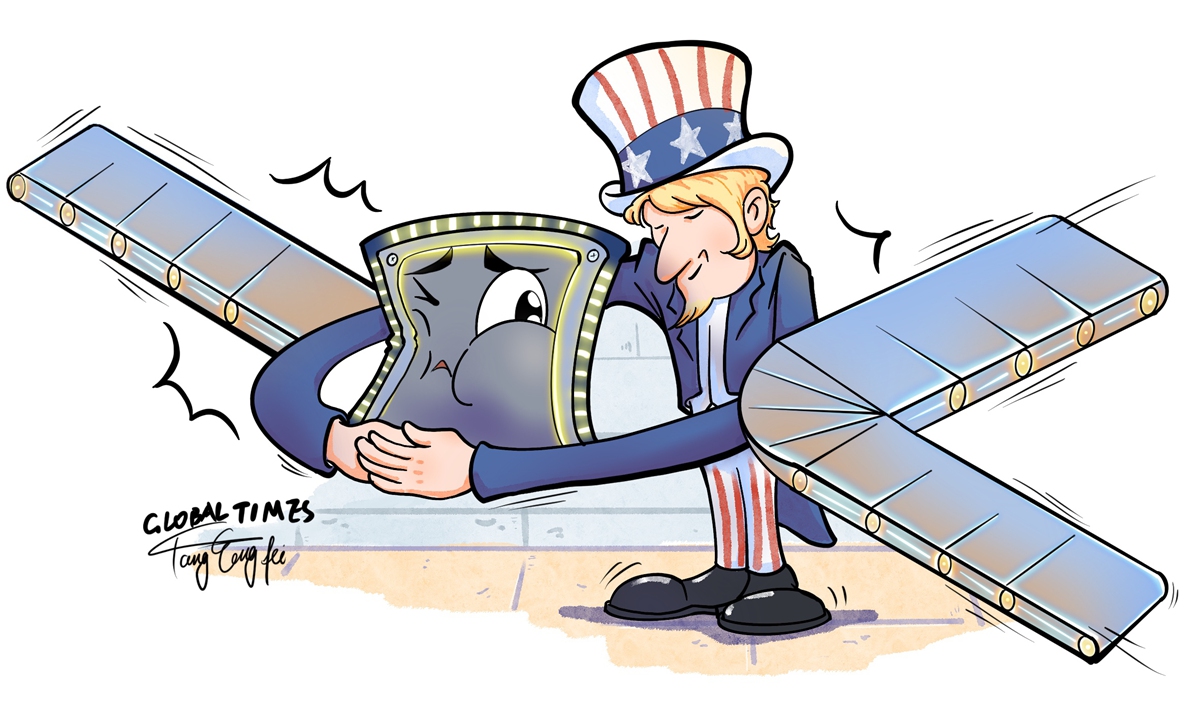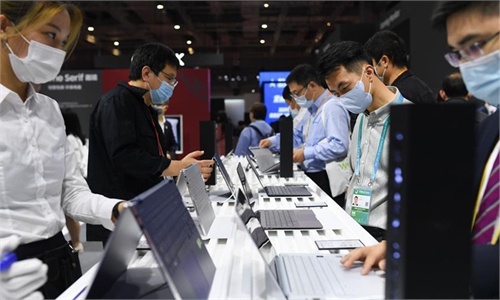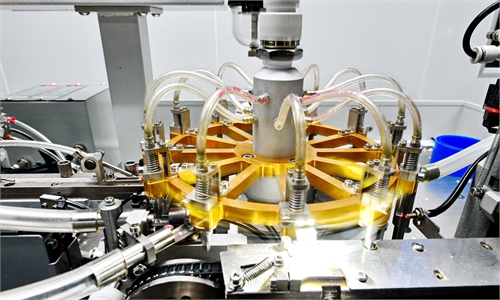
Illustration: Tang Tengfei/Global Times
South Korea's presidential office said on Tuesday that officials from South Korea, the US and Japan have held their first economic security dialogue, which will likely play a role in strengthening supply chain resilience and fostering cooperation to protect key and emerging technologies, Reuters reported on Tuesday.Since the US' "decoupling" campaign began to make headlines several years ago, Washington has been keen to coerce its allies and partners to "decouple" from China. The US final purpose is to exclude China from the global supply chain, especially in strategic sectors such as the semiconductor industry.
The US' push for tech "decoupling" from China is certain to disrupt both global and regional industrial chains, especially in Asia.
As a restructuring of the Asian industrial chain seems to have accelerated amid global economic uncertainty, Washington is trying to push it in a direction that serves the US interests and its "decoupling" push.
However, it should be pointed out that a restructuring built on the US' selfish strategic purposes goes against the interests of most Asian economies including Japan and South Korea. The US has been trumpeting the supply chain resilience, but what it is doing is to cite the so-called economic security as an excuse to engage more directly into the industrial chain restructuring in Asia and try to isolate China. This actually inflicts harm on the Asian economy.
Take South Korea. The country's export slump deepened in February as a plunge in chip prices weighed on the market. According to Bloomberg, working-day shipments on average fell 15.9 percent from a year earlier, the biggest drop since June 2020. The slide in exports came several days after the South Korean government set this year's export target at $685 billion, little changed from last year's achievement. The Yonhap News Agency reported that South Korea saw its outbound shipments rise 6.1 percent to reach a record $684 billion in 2022, on the back of strong demand for chips. But in 2023, how much South Korea's exports will be impacted as the industrial chain restructuring unfolds is uncertain.
According to Yonhap, South Korea's trade ministry said the country needs to closely monitor protectionism, as "major partners, including the US and the EU, are reorganizing their supply chains by raising their trade barriers."
As Washington prepares to roll out further provisions to prevent semiconductor investment flowing into China, media reports said South Korea will try to persuade the US to let its chipmakers in China retain current levels of investment. South Korean officials are discussing various ways for their own companies already having invested in China to avoid harm from the Biden administration's crackdown on China's semiconductor industry.
An interesting phenomenon is unfolding. On one hand, officials from South Korea and the US held their first economic security dialogue, with the excuse of strengthening the resilience of supply chains. On the other hand, South Korea has also showed a willingness to work with China to maintain their semiconductor trade and current levels of investment. These seemingly contradictory behaviors suggested South Korea now has complex emotions toward ongoing industrial chain restructuring in Asia.
But one thing is clear: It is easy for South Korea to be well aware of the fact that the US is unable to squeeze China out of the Asian supply chains and South Korea needs China's semiconductor market.
At a time when Asian economies are facing challenges such as geopolitical tensions and economic uncertainties, it is crystal clear whether Asian economies, including China, South Korea and Japan, should reduce or strengthen economic and trade cooperation.
As long as the Asian economies continue to strengthen coordination and expand the scope for economic and trade cooperation, Washington's "decoupling" voices will eventually lose to rational forces in Asia. That's why we remain confident that the economic cooperation among Asian economies, including China and the South Korea, will be pushed forward despite the US' "decoupling" campaign.
The author is a reporter with the Global Times. bizopinion@globaltimes.com.cn



